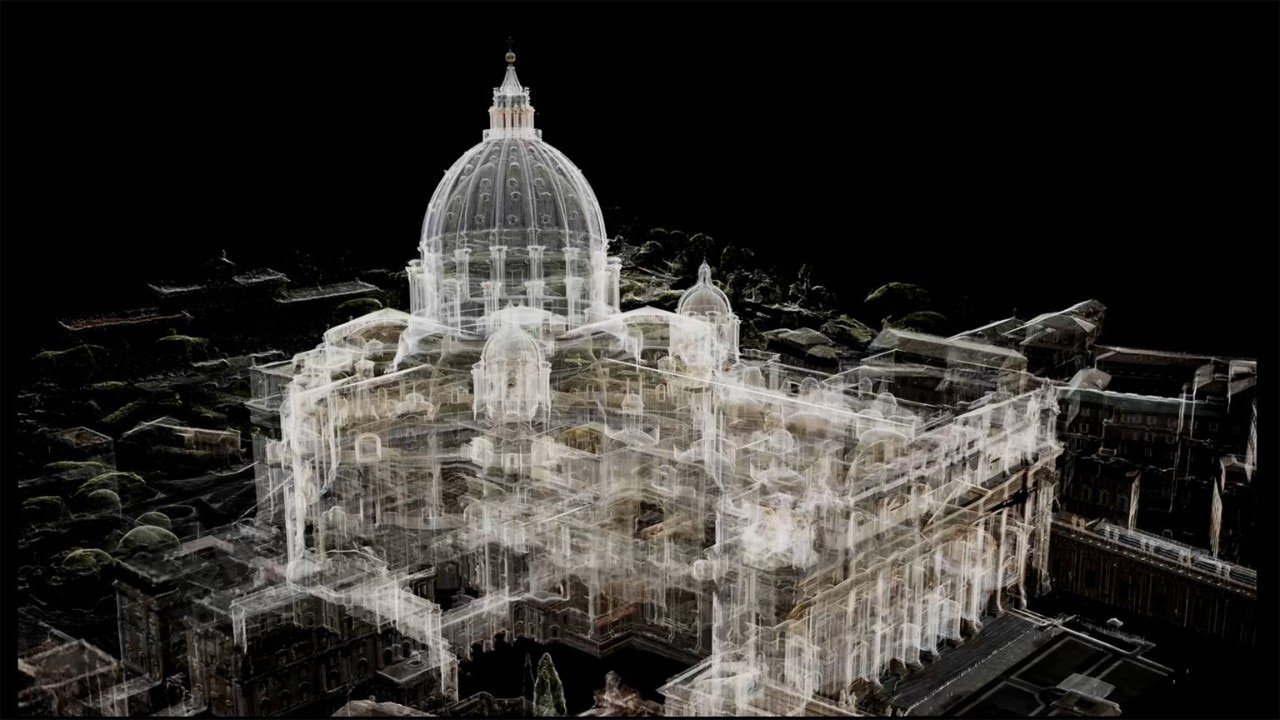It took over 400,000 high-resolution images and an enormous amount of data, equivalent to 22 petabytes—around 5 million DVDs—to complete the digital twin of St. Peter's Basilica, now finally ready.
The project, titled "San Pietro: AI-Enhanced Experience," was born two years ago from a meeting between Cardinal Mauro Gambetti, head of the Fabbrica di San Pietro, and Brad Smith, Vice Chairman and President of Microsoft.
For three weeks, every evening after the Basilica closed to the public, drones equipped with laser scanners flew over the site, capturing 400,000 ultra-precise images. These data allowed artificial intelligence to reconstruct an extremely detailed 3D model.
A crucial contribution came from Iconem, a French company specializing in the 3D digitization of cultural sites, which led the process of developing and refining the virtual model. Iconem has long advocated for the digitization of heritage sites to increase accessibility and ensure their preservation.
Thanks to the image scans, it was also possible to detect and map the structural vulnerabilities of the Basilica, transforming a project initially intended for tourism purposes into a valuable tool for the conservation of the masterpieces it houses and for planning future restoration interventions.
The project is part of a broader initiative aimed at increasing public access to the Vatican’s heritage and activities in preparation for the 2025 Jubilee, during which around 30 million pilgrims are expected—significantly more than the 40,000-50,000 people who visit the Basilica daily.
An interactive website will allow people worldwide to experience St. Peter’s Basilica in a technically and historically innovative way, offering direct access through detailed 3D models and educational content.
This experience is further enriched by two immersive exhibitions curated by the Lithuanian design studio Dadada, titled "Petros Eni" and "Petros Eni Octagon," designed to guide visitors through the history and transformations of the Basilica over the centuries.
Starting in January, an official Minecraft version will also be available, fulfilling the dream of many enthusiasts who have spent years recreating amateur versions within the iconic block-based digital universe.














